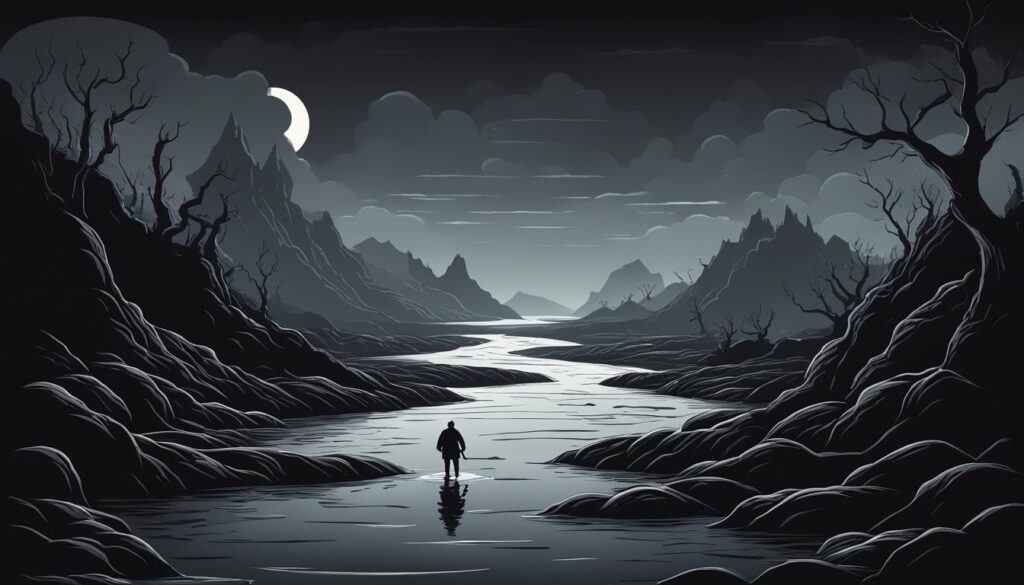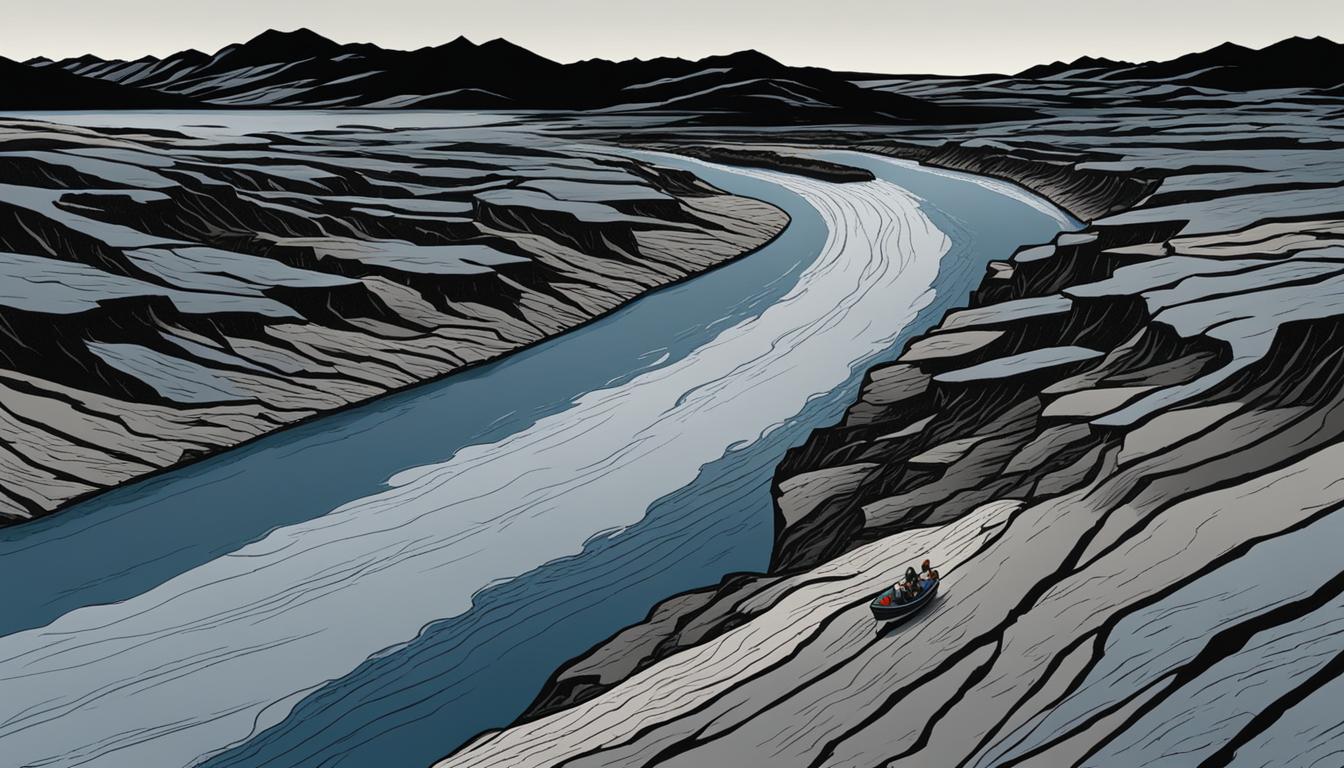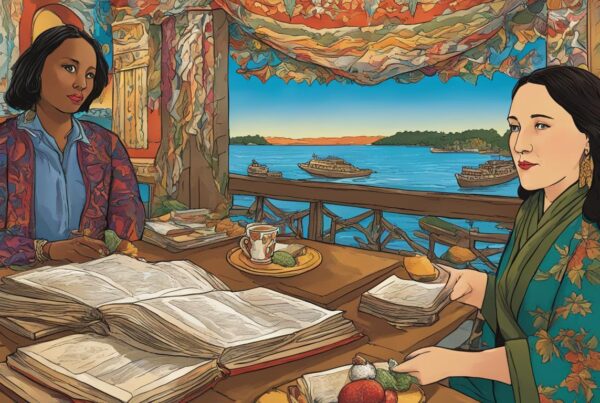A River in Darkness is a gripping memoir by Masaji Ishikawa, a man who defied all odds to escape from one of the most oppressive regimes in the world. This book tells the harrowing tale of Ishikawa’s life in North Korea, his daring escape, and his eventual journey to freedom. Through this memoir, Ishikawa sheds light on the brutal reality of life in North Korea, providing a first-hand account of the challenges and struggles faced by its citizens. In this article, we will delve deeper into the various facets of Ishikawa’s story, examining his life in North Korea, his escape, and his journey to a new life. Join us as we explore this powerful and moving book, which has become a must-read for anyone interested in the realities of life in one of the most closed-off countries in the world.
About the Author
Masaji Ishikawa was the author of the book, A River in Darkness: One Man’s Escape from North Korea. Born in Japan to a Korean mother and Japanese father, Ishikawa moved to North Korea with his family at the age of 13. He experienced firsthand the poverty, oppression, and constant fear of the North Korean regime.
Despite the challenges he faced, Ishikawa eventually made the difficult decision to escape from North Korea and start a new life. His journey, which he describes in his book, was filled with danger, uncertainty, and unimaginable hardship. After escaping to China, Ishikawa eventually made his way to Japan, where he continues to live and work today.
“Ishikawa’s story provides a unique perspective on the realities of life in North Korea, offering insights that are both harrowing and inspiring.” – The New York Times
Overview of North Korea
North Korea, officially known as the Democratic People’s Republic of Korea, is a highly secretive country located in East Asia. It is bordered by China to the north, Russia to the northeast, and South Korea to the south. With a population of over 25 million, North Korea is known for its repressive political regime, strict social controls, and poor living standards for its citizens.
The political system of North Korea is characterized by a one-party state led by the Korean Workers’ Party and its leader, currently Kim Jong-un. The government exercises strict control over all aspects of life, including the media, education, and religion. Human rights abuses, including arbitrary detention, torture, and lack of freedom of speech, are widespread.
The economy of North Korea is largely state-controlled and centrally planned, with limited access to resources and foreign trade. As a result, the country faces significant economic challenges, including poverty, food shortages, and poor living conditions for many of its citizens.
Despite its challenges, North Korea remains a significant player in global politics, with its nuclear program and ongoing tensions with neighboring countries attracting international attention. Understanding the complex political and social landscape of North Korea is essential to understanding the experiences of those who live there and the challenges they face on a daily basis.
Life in North Korea
Life in North Korea is characterized by various challenges resulting from the oppressive regime, poverty, and lack of basic necessities. The North Korean government exercises strict control over all aspects of its citizens’ lives. There is little to no freedom of speech, assembly, or movement, and the government heavily censors all media and information.
The poverty rate is high, with many North Koreans struggling to meet their basic needs such as food, shelter, and healthcare. The government heavily prioritizes the military and nuclear program over its citizens’ welfare, resulting in a lack of resources for the basic needs of the people.
“In North Korea, you are not a human being – you’re a robot who’s created and controlled by the state.” – Yeonmi Park, North Korean defector
The living conditions in North Korea are dire, with many families living in small, crowded apartments without adequate heating, plumbing, or sanitation facilities. The country is plagued by frequent power outages, and many areas lack access to clean drinking water.
“The most basic fundamental human rights, such as the freedom of thought, expression, and association, do not exist in North Korea. Those who dare to ask for them pay a steep price, one that many cannot afford.”
These conditions have led many North Koreans to attempt to escape, risking their lives to seek a better life elsewhere. Masaji Ishikawa’s story sheds light on the harsh realities of life in North Korea and the immense challenges faced by those trying to escape its grip.
Masaji Ishikawa’s Escape
After enduring years of hardship and oppression in North Korea, Masaji Ishikawa finally decided to escape in search of a better life. The journey was perilous, and Ishikawa faced countless obstacles along the way, but his determination never wavered.
Guided only by his instincts and a tentative map, Ishikawa made his way to the Yalu River, which forms the border between North Korea and China. Once he crossed the river, he faced a new set of challenges, including navigating the Chinese landscape while avoiding detection by authorities.
It would be months before Ishikawa could safely arrive in Japan, and his journey was anything but easy. But his courage and resilience ultimately prevailed, and his story has since become a symbol of hope and determination for people worldwide.
“I became convinced that in order to live a real life, I needed to live outside of North Korea, and that I needed to escape no matter what the cost.”
-Masaji Ishikawa, A River in Darkness
Crossing the Yalu River
After escaping from North Korea, Masaji Ishikawa faced the daunting task of crossing the Yalu River, which forms the border between North Korea and China. Masaji knew the crossing would be dangerous and that he would risk his life to make it to the other side. He prepared himself as best as he could, gathering supplies and taking precautions to avoid being seen by North Korean guards.
At night, Masaji and a group of fellow escapees waded into the freezing water, fighting against the strong current. They struggled to keep their balance and avoid being swept away by the force of the river. Masaji later described the experience as one of the most challenging moments of his life.
Once across the river, Masaji still had to navigate through China, where he faced many dangers and uncertainties. He had no legal status in the country and was at risk of being deported back to North Korea. Despite these challenges, Masaji was determined to make a new life for himself and keep moving forward.
“The Yalu River was one of the most difficult obstacles in my escape. I knew it was a risk, but I had no other choice. I had to get to China if I wanted to survive and build a better life for myself.”
Life in China
After escaping North Korea, Ishikawa initially found refuge in China, but life there had its own set of challenges. Not only was he an illegal immigrant, but he also faced discrimination as a Korean in a country where many locals viewed North Koreans with suspicion. Ishikawa worked a series of odd jobs, struggling to make ends meet while avoiding authorities who could send him back to North Korea.
The language barrier also posed a significant challenge, as Ishikawa spoke little Mandarin and had to rely on translators or hand gestures to communicate. His health suffered, and he was frequently sick due to poor living conditions and limited access to healthcare.
“I felt like I was in another prison,” Ishikawa recalled in his book A River in Darkness. “Every day was a struggle to survive, but at least I was free.”
Eventually, with the help of a network of fellow North Korean refugees, Ishikawa was able to obtain fake documents and make his way to Japan, where he was granted refugee status and started a new life.
Journey to Japan
After leaving China, Masaji Ishikawa’s journey to Japan was long and perilous. He traveled by foot, car, bus, and boat, often facing extreme weather conditions and dangerous situations.
Once he reached Japan, Ishikawa faced a new set of challenges. As an ethnic Korean, he was not immediately accepted by the Japanese society and struggled to find a job and a place to live. However, he eventually settled in and started a new life.
Despite the difficulties he faced, Ishikawa never lost hope and continued to look towards a better future. His journey to Japan symbolizes the strength and resilience of the human spirit in the face of adversity.
In the next section, we’ll explore Masaji Ishikawa’s reflections on freedom and its significance in his story.
Reflections on Freedom
After escaping from North Korea, Masaji Ishikawa spent years adjusting to his new life and reflecting on the value of freedom. His experiences have given him a unique perspective on the challenges of adapting to a new culture and rebuilding a life from scratch.
“Freedom is not something that can be given or taken away. It is a state of mind.”
These words, spoken by Masaji Ishikawa, capture the essence of his reflections on freedom. For him, freedom is not just a physical state, but a mindset that requires a sense of purpose, determination, and hope.
But achieving this state of mind is easier said than done. For Masaji Ishikawa, the journey to freedom was filled with peril and uncertainty. He had to risk his life to escape from North Korea, leaving behind everything he had ever known. And even after he arrived in Japan, he still faced discrimination and prejudice as a North Korean defector.
Despite these challenges, Masaji Ishikawa never lost hope. He continued to press forward, driven by his desire for a better life and his belief in the power of freedom.
The lessons he learned along the way are powerful reminders of the resilience of the human spirit. Masaji Ishikawa’s reflections on freedom offer us a glimpse into the profound impact that oppression can have on the human soul, and the transformative power of hope and perseverance.
Impact and Reception
A River in Darkness has made a significant impact on readers worldwide, shedding light on the brutal realities of life in North Korea. The book has received critical acclaim for its powerful storytelling and vivid portrayal of Masaji Ishikawa’s harrowing journey to freedom.
“A River in Darkness is an inspiring and heartwrenching memoir that will stay with readers long after they turn the last page.” – Publishers Weekly
The book’s contribution to raising awareness about North Korea and the need for international action has been widely recognized. Its resonance with readers is reflected in numerous reviews and ratings, with an average rating of 4.5 stars on Amazon.
| Rating Source | Number of Reviews | Average Rating |
|---|---|---|
| Amazon | 1,500+ | 4.5 stars |
| Goodreads | 12,000+ | 4.34 stars |
| Barnes & Noble | 450+ | 4.5 stars |
The overwhelming positive reception of A River in Darkness has demonstrated the power of personal narrative to create empathy and understanding, inspiring readers to take action and support efforts to address human rights abuses in North Korea.
Lessons Learned
Masaji Ishikawa’s story in A River in Darkness teaches us invaluable lessons about the human spirit and the power of hope. Despite facing insurmountable challenges, he never gave up on his quest for a better life.
One lesson we can learn from Masaji’s journey is the importance of resilience. Despite the constant obstacles thrown his way, he refused to let his spirit break and fought tirelessly for his freedom. His story shows us that even in the darkest of moments, we can find the strength to keep going.
Another lesson we can take from A River in Darkness is the power of hope. Despite living in a country where hope was a rare commodity, Masaji never lost sight of his dreams and clung on to the hope that he would one day be free. His unwavering belief that better days were ahead helped him keep going.
Finally, Masaji’s story emphasizes the need for international action to address human rights abuses in North Korea. By sharing his experiences, he shines a light on the atrocities committed by the North Korean regime and reminds us of the importance of fighting for justice and freedom.

“I learned that when freedom is withheld, the desire for it burns within your heart like a flame. And as the years pass, that flame grows only stronger, until it finally bursts forth and takes you on a journey to the end of the world.”
The Journey Continues
Masaji Ishikawa’s story may have concluded with his escape from North Korea, but his journey continues to inspire people around the world. His resilience, hope, and determination serve as a reminder that even in the darkest of times, there is always a glimmer of light on the horizon.
Conclusion
A River in Darkness by Masaji Ishikawa is a haunting memoir that sheds light on the brutal realities of life in North Korea under the oppressive regime. Ishikawa’s harrowing journey to escape his home country is a testament to the power of human resilience and the unwavering desire for freedom.
The book provides a valuable insight into the daily struggles faced by the people of North Korea and the need for international action to address human rights abuses. Ishikawa’s reflections on his experiences highlight the value of freedom and the challenges of adjusting to a new life.
A River in Darkness has received critical acclaim for its contribution to raising awareness about North Korea and the heart-wrenching story of its author. Ishikawa’s journey and the lessons learned from his story serve as an important reminder of the power of hope and the importance of standing up against oppression.
In conclusion, A River in Darkness is a powerful and important book that deserves to be read widely. It highlights the resilience of the human spirit and the need for continued efforts to promote freedom and human rights for all.



